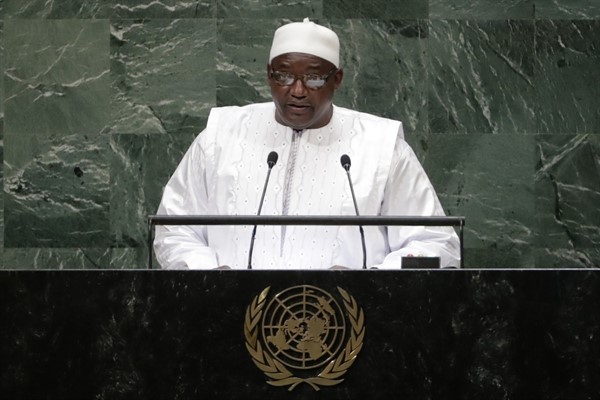Gambia will vote in a presidential election on Dec. 4 for the first time since former President Yahya Jammeh was defeated in December 2016 by incumbent Adama Barrow, ending 22 years of oppressive rule that was marked by widespread human rights violations. The ballot is expected to be a critical test for the country’s ongoing transition from dictatorship to democracy, amid concerns that interference from Jammeh, who is in exile in Equatorial Guinea, could threaten national cohesion and stability.
“We are facing a very uncertain moment,” Fatou Jagne Senghore, the West Africa director for the human rights NGO Article 19, told World Politics Review. “We are in a problematic situation due to the fact that the transition was highjacked by other agendas,” she added.
Senghore pointed to the recent controversial alliance between Barrow’s National People’s Party, or NPP, and the party of Jammeh’s regime, the Alliance for Patriotic Reorientation and Construction, or APRC, as a sign that Barrow wants to stay in power “by hook or crook.”

